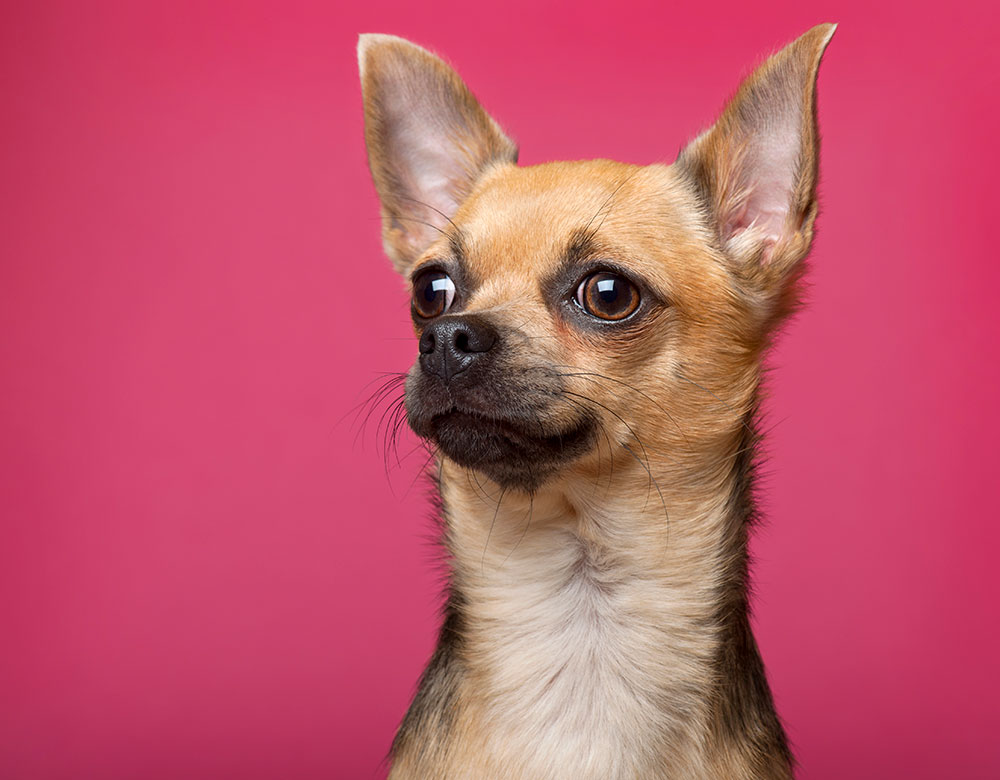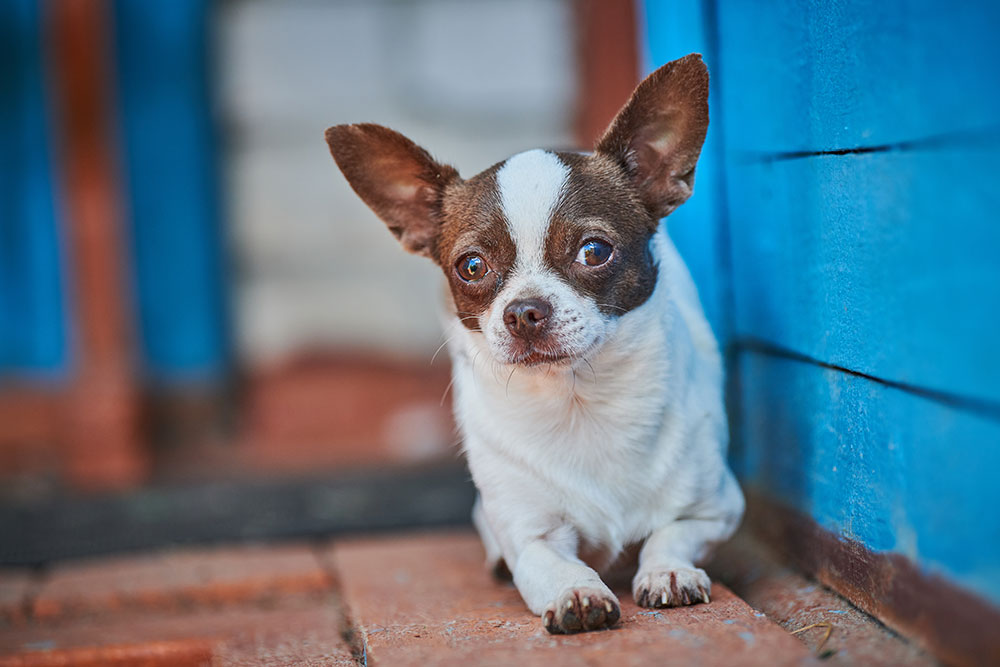Introduction
Chihuahuas are one of the smallest dog breeds, but don’t let their tiny size fool you—they have personalities that are anything but small. Known for their boldness, intelligence, and strong attachment to their owners, these dogs are packed with energy and character.
Originally from Mexico, Chihuahuas have been bred for companionship for centuries, making them one of the most affectionate and loyal dog breeds. However, their strong-willed nature and tendency to form deep attachments to one person can present challenges if not properly managed.
This guide is for anyone curious about what makes a Chihuahua tick—whether you’re thinking of adopting one, already have one, or just love learning about dog behavior. We’ll cover everything from their playful quirks and training needs to potential challenges and solutions.
Understanding a Chihuahua’s personality is key to ensuring they lead a happy and well-balanced life. Let’s take a closer look at the defining traits that make these little dogs so special.
Key Traits of a Chihuahua’s Personality
Chihuahuas may be tiny, but their personalities are anything but! These little dogs are packed with energy, confidence, and charm. Here are some of the most defining traits of a Chihuahua’s personality:
Loyal & Affectionate
Chihuahuas form deep bonds with their owners, often favoring one person in particular. They love to snuggle and can be incredibly affectionate, always seeking out a warm lap or a cozy spot near their favorite human. Because of this strong attachment, they may become clingy and experience separation anxiety if left alone too often.
Confident & Bold
Despite their small stature, Chihuahuas carry themselves with the confidence of a much larger dog. They aren’t afraid to stand their ground, which can sometimes make them seem bossy or stubborn. This fearless attitude means they’ll often try to challenge bigger dogs or unfamiliar situations without hesitation.
Intelligent & Curious
Chihuahuas are highly intelligent and quick learners. They enjoy puzzles, interactive toys, and new challenges. However, their intelligence also means they can be a little manipulative—figuring out how to get what they want, whether through charm or persistence.
Energetic & Playful
Though they don’t require as much exercise as larger breeds, Chihuahuas love to play and stay active. Short bursts of playtime, walks, and mental stimulation keep them happy. They can be quite mischievous when they have excess energy, so interactive activities are essential.
Alert & Protective
Chihuahuas are natural watchdogs. They tend to be wary of strangers and will alert their owners to anything unusual. While this makes them great little protectors, it can also lead to excessive barking if not properly managed.
Their combination of loyalty, confidence, and intelligence makes Chihuahuas wonderful companions, but understanding their quirks is key to ensuring they thrive.
Socialization & Temperament
Chihuahuas have a bold and sometimes feisty temperament, which makes early socialization essential for a well-rounded dog. Without proper exposure to different people, animals, and environments, they can become overly territorial, fearful, or aggressive.
Why Socialization Matters
Because Chihuahuas tend to form strong attachments to their owners, they can be wary of strangers and other animals. If not introduced to new experiences early on, they may develop behaviors like excessive barking, nipping, or defensive aggression. Socialization helps them feel more confident in unfamiliar situations, reducing stress and unwanted behaviors.
Introducing Chihuahuas to New People & Pets
-
Start young: The earlier they meet different people and animals, the more comfortable they’ll be.
-
Keep interactions positive: Reward calm behavior with treats and praise.
-
Go slow: Some Chihuahuas are naturally more hesitant. Allow them to approach new people or pets at their own pace.
-
Watch for overstimulation: Too much excitement can be overwhelming, so give them breaks if needed.
Managing Possessiveness & Territorial Behavior
Chihuahuas are known to guard their favorite people, toys, and even spaces. Setting boundaries early on—such as teaching them to share toys and not growl when someone approaches their food—can prevent possessive tendencies from becoming a problem.
A well-socialized Chihuahua is more adaptable, friendly, and confident. Taking the time to introduce them to new experiences will help shape a happier, more balanced companion.
Chihuahua Behavior Challenges & How to Manage Them
Chihuahuas are charming and intelligent, but they also come with unique behavioral challenges. Understanding these tendencies and using the right training methods can help prevent frustration for both the dog and the owner.
Excessive Barking
Chihuahuas are naturally alert and vocal, often barking at noises, strangers, or anything they perceive as a threat. While this makes them excellent watchdogs, constant barking can become a problem.
How to manage it:
-
Teach the “quiet” command with positive reinforcement.
-
Avoid reinforcing barking by giving attention or picking them up when they bark.
-
Provide distractions, such as toys or interactive play, to keep them engaged.
분리 불안
Their deep attachment to their owners can make them anxious when left alone. This may lead to destructive behavior, whining, or excessive barking.
How to manage it:
-
Practice short departures and gradually increase the time spent away.
-
Leave interactive toys or puzzle feeders to keep them occupied.
-
Avoid dramatic exits and arrivals to reduce stress.
House Training Difficulties
Small dogs have small bladders, making consistent potty training essential.
How to manage it:
-
Take them out frequently, especially after meals, naps, and playtime.
-
Use puppy pads as a backup but focus on outdoor training.
-
Reward successful potty trips with treats and praise.
Stubbornness & Training Challenges
Chihuahuas are smart but can be strong-willed, which sometimes makes training difficult.
How to manage it:
-
Use positive reinforcement—treats, praise, and playtime work best.
-
Keep training sessions short and engaging to match their attention span.
-
Be patient and consistent, as they respond best to firm but gentle training.
With the right approach, these challenges can be managed effectively, leading to a well-behaved and happy Chihuahua.
How to Keep a Chihuahua Happy & Healthy
Chihuahuas may be small, but they have specific needs to stay happy and healthy. A mix of physical activity, mental stimulation, and a comfortable environment will help them thrive.
Exercise & Playtime
While Chihuahuas don’t need as much exercise as larger breeds, they still require daily movement to stay fit and prevent boredom.
-
Short walks (10–20 minutes) twice a day are usually enough.
-
Interactive play with toys or puzzle feeders keeps their minds engaged.
-
Indoor activities like fetch or hide-and-seek work well for those in apartments or colder climates.
Training & Mental Stimulation
Because they are intelligent and sometimes stubborn, Chihuahuas need consistent training and engagement.
-
Teach basic commands like sit, stay, and come to reinforce good behavior.
-
Rotate different toys to prevent boredom.
-
Introduce new experiences, like car rides or visits to dog-friendly stores, to keep their minds active.
Creating a Comfortable Environment
Chihuahuas love warmth and cozy spaces.
-
Provide a soft bed or blanket in a draft-free area.
-
In colder weather, they may need sweaters or jackets for outdoor walks.
-
Avoid rough handling or high places, as their small size makes them prone to injuries.
Meeting these needs will ensure your Chihuahua is happy, well-adjusted, and full of life.
Frequently Asked Questions (FAQs)
Are Chihuahuas good family pets?
Chihuahuas can be great companions, but they tend to bond closely with one person. They are better suited for households with older children who understand how to handle small dogs gently. Proper socialization helps them adjust to family life.
Do Chihuahuas get along with other dogs?
Chihuahuas can coexist with other dogs, especially if they are introduced at a young age. However, they often prefer dogs of similar size and may be intimidated by larger breeds. Supervised interactions and slow introductions are key to a peaceful relationship.
Why does my Chihuahua shake so much?
Chihuahuas commonly shake due to cold temperatures, excitement, stress, or low blood sugar. Keeping them warm with sweaters or blankets and ensuring they have regular meals can help reduce excessive shaking. If the shaking seems excessive, a vet check-up may be necessary.
Can a Chihuahua be left alone during the day?
Chihuahuas prefer company, but they can be trained to tolerate short periods alone. Providing interactive toys, a cozy space, and gradually increasing alone time can help them adjust. If left alone for long hours, they may develop separation anxiety.
How do I stop my Chihuahua from barking so much?
Excessive barking is often due to alertness, boredom, or demand for attention. Training them with the “quiet” command, providing mental stimulation, and avoiding reinforcement of barking (such as picking them up when they bark) can help reduce this behavior.



